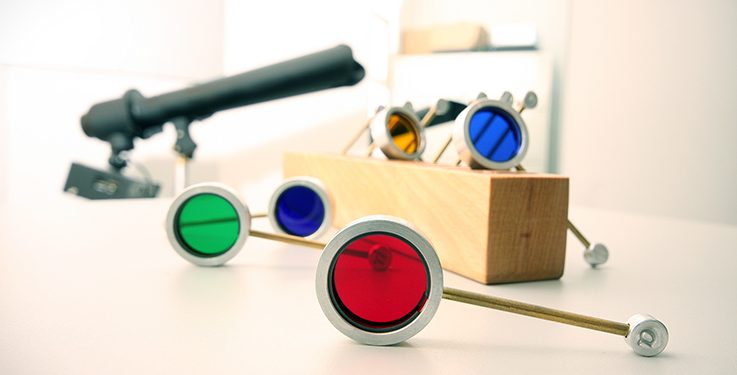by Kelly Harrigan
Yes, we all need a little balance in our lives. Syntonics has been around for longer than most of us have been alive. This non-invasive therapy has proven its safety, efficacy, and therapeutic value to those suffering from traumatic brain injuries and concussions, as well as other dysfunctions like lazy eye, eye turn, convergence and depth perception problems, some learning disorders, and as well as jaundice in newborns.
What is Syntonics?
It’s optometric phototherapy. In plain English, it’s a light therapy for the eyes. It differs from the bright, white light people use for seasonal affective disorder (SAD) through its use of specific wavelengths of light to project into the eyes and assists the brain in its neuro-vision rehabilitation (translated: brain-eye therapy) by balancing and regulating the body and its processes.
Why would someone with TBI or post-concussive syndrome (PCS) need any form of therapy, let alone light therapy? Brain injuries often leave people with multiple lingering effects, both physical and emotional. These include: headaches or migraines, insomnia or other sleep disturbances, auditory and photosensitivity, dizziness, depression, irritability, inability to cope, and post traumatic stress disorder (PTSD). In short, the body’s nervous system has anxiety.
In initial physical examinations, visual problems resulting from brain injuries are frequently overlooked, and often leave people with problems relating to:
- Focus
- Convergence
- Blurred or double vision
- Headaches associated with visual tasks
- Reading and comprehension difficulties
- Balance issues related to vision
- Photosensitivity
When identification and treatment are delayed, people are often at risk for further injury, and could continue to be unable to drive, work, or read, and feel socially and emotionally isolated as a result. Syntonics might be an effective and simple way for you to ameliorate/improve many of the physical and emotional symptoms from your head injury.
Looks perfect, bad pun intended. How does it work?
The brain is the boss of the body’s nervous system, which is divided into the sympathetic (think “fight or flight”) and the parasympathetic, or the part that takes care of digestion and rest responses.
Here’s what happens:
- The eye is the conduit to the brain for visual information processing and non-visual connections to the pineal gland and hypothalamus with colored light stimulating the brain and causing new growth.
- Utilizing specific wavelengths unique to your own vision therapy and goals, you will sit in a darkened room for up to twenty minutes, viewing the light through a special color filter to help your body re-balance.
- A variety of colors are used, dependent on which part of the nervous system requires balancing. For instance, blue might help with sleep and anxiety by decreasing your adrenaline, reducing anxiety, and improving focus.
How will your doctor determine the best form of light therapy for you?
They don’t do it by asking your favorite color and letting you look at that. Cue the eye roll, please. Your doctor will measure your pupillary reaction. When a light is shone into your eye, your pupil should maintain constriction for 8-10 seconds. If it is unable to hold constriction and begins to dilate, this is an indicator that your nervous system is stressed and imbalanced. Your doctor might also test to see if your visual field is restricted. A reduced visual field means it is harder for you to see around you, and this creates visual stress. They will also test your binocularity to determine if your eyes are working in sync. Sometimes, one eye could turn off, or suppress, incoming visual information, which is a negative coping strategy by your brain to control the amount of information it is receiving.
Lifestyle modifications, such as a healthy diet, as well as minimizing alcohol, caffeine, smoking, and other toxins, are recommended to maximize the effectiveness of your treatment, in addition to other visual aids and therapy.
Dr. Ray Gottlieb, dean of the of Syntonic Optometry, reports patients receiving syntonic therapy acknowledge that they have an improved mood and visual skills, better sleep and memory, and an overall improvement in general performance, and that patients who have head injuries tend to improve the most, with changes tending to be long-lasting and profound.
Disclaimer: Have a licensed optometrist familiar with head injuries and syntonics perform a thorough evaluation to assist you with the proper therapy for your needs.
Kelly is a single mum, veteran, TBI survivor with a girl child and a frenchie, oolong tea in hand and humor on hand, who lives in Annapolis, Maryland.










